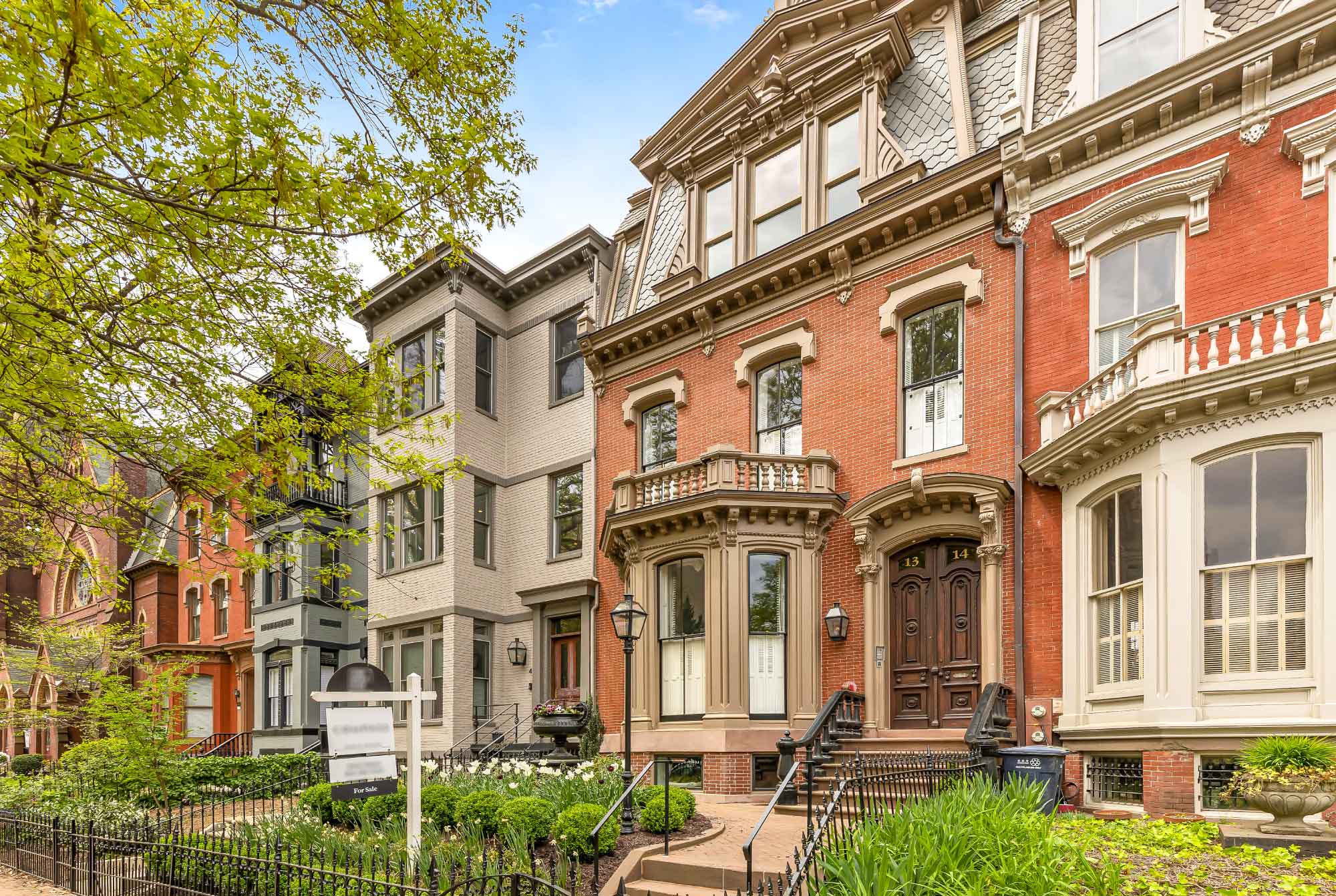What Happens To The DMV Housing Market In An Election Year?

DC is a market unlike any other — particularly when it comes to political considerations and impact. Wondering how to navigate the DMV housing world during an election year? You’re not alone. Whether you’re set on selling, looking to buy, or somewhere in between, here’s what you should expect as election day draws near!
#1 Increased Demand And Mobility:
Election years bring a wave of government officials, lobbyists, political staff, and professionals seeking housing in anticipation of a new administration. This influx can boost demand, especially for rental properties and short-term leases, as people move to or from the city based on election outcomes. On the other hand, outgoing officials and their staff may be selling properties, while incoming ones will look for new homes. This can create a cycle of buying, selling, and renting that spikes around (and following) the election in January and February of the following year.
For more tips on relocating to DC, read these posts next:
- How to Buy a Home in DC from Out of State
- Best DC Suburbs for Families
- Best Neighborhoods in DC for Buying a Condo
#2 Uncertainty And Caution:
During election years, especially in the months leading up to the election, there’s often uncertainty about the future political landscape. This can make buyers and investors cautious over the next few months, causing them to delay major decisions like purchasing or selling property until there’s more clarity on the election outcome. Unsurprisingly, real estate markets are sensitive to potential changes in federal policies, such as tax regulations, housing initiatives, or economic policy shifts. Depending on the candidates’ platforms, people might hold off on real estate decisions if they anticipate policy changes that could impact home values or investment prospects. Not affected by politics in DC? This time of year could be the perfect time to buy!
#3 Fluctuations In Housing Prices:
DC’s luxury and high-end real estate market often remains robust during election years, as affluent buyers and political figures need premium homes, regardless of election results. What does this mean? Expect to see consistent demand for properties in coveted neighborhoods like Georgetown, Cathedral Heights, Chevy Chase DC, Capitol Hill and Kalorama. However, the middle of the market may experience a slowdown as regular homebuyers exercise caution, which can lead to a temporary softening of housing prices or slower sales.
Curious about some of the neighborhoods we’ve mentioned so far? Read these posts next:
- Your Guide to Chevy Chase, DC
- What’s it Really Like Living in Georgetown, DC
- Neighborhood Spotlight: Living in Capitol Hill
#4 Shift In Rental Market:
With the anticipated political turnover, many incoming professionals and staff prefer renting over buying due to the temporary nature of their roles. This leads to an uptick in rental demand, especially in neighborhoods close to Capitol Hill and downtown DC. As demand increases, rental prices may rise in prime areas. Short-term leases and furnished rentals also see more interest as people transition in and out of the city.
#5 Post-Election Boom:
After the election, market activity typically picks up as uncertainty fades and people make more decisive real estate moves. Buyers who delayed purchasing may enter the market, and sellers feel more confident about listing their properties. If there’s a change in administration, the need for housing among new government officials, diplomats, and associated professionals increases, driving a mini-boom in both sales and rentals.
#6 Investment Property Trends:
In election years, commercial real estate (particularly in sectors related to government and lobbying), may see more investment interest as new businesses, advocacy groups, and firms set up operations to interact with the new administration. Investors may also speculate on how the election will impact economic policy — such as infrastructure spending or tax changes — influencing their decisions on purchasing real estate assets.
Should you buy an investment property in DC? Read this post first.
#7 Overlap With Federal Interest Rate Developments:
In light of the recent interest rate cuts, it’s also possible that the market will continue to accelerate without its typical election-fueled pause. The reality? There are tons of prospective buyers who have just been sitting on the sidelines waiting for their shot, and since a large number of rental leases are up next spring, those buyers are going to start planning their next move now. In short: Either way, there’s a good chance that we’ll see a heated market heading into 2025.
Is it a good idea to buy a home before interest rates go down? Find out in this blog right here.
At the end of the day, while uncertainty can temporarily slow the DC real estate market during election years, the city’s unique position as the seat of the federal government ensures that demand for housing remains as strong as ever! Ready to make moves this election season or beyond? Our trusted team is only a call away.
Are you planning a move this election year? We can help! Give us a call directly at 202.280.2060 or email us at jsmira@jennsmira.com.
Put Us To Work For You
Book a consultation with our team today.
